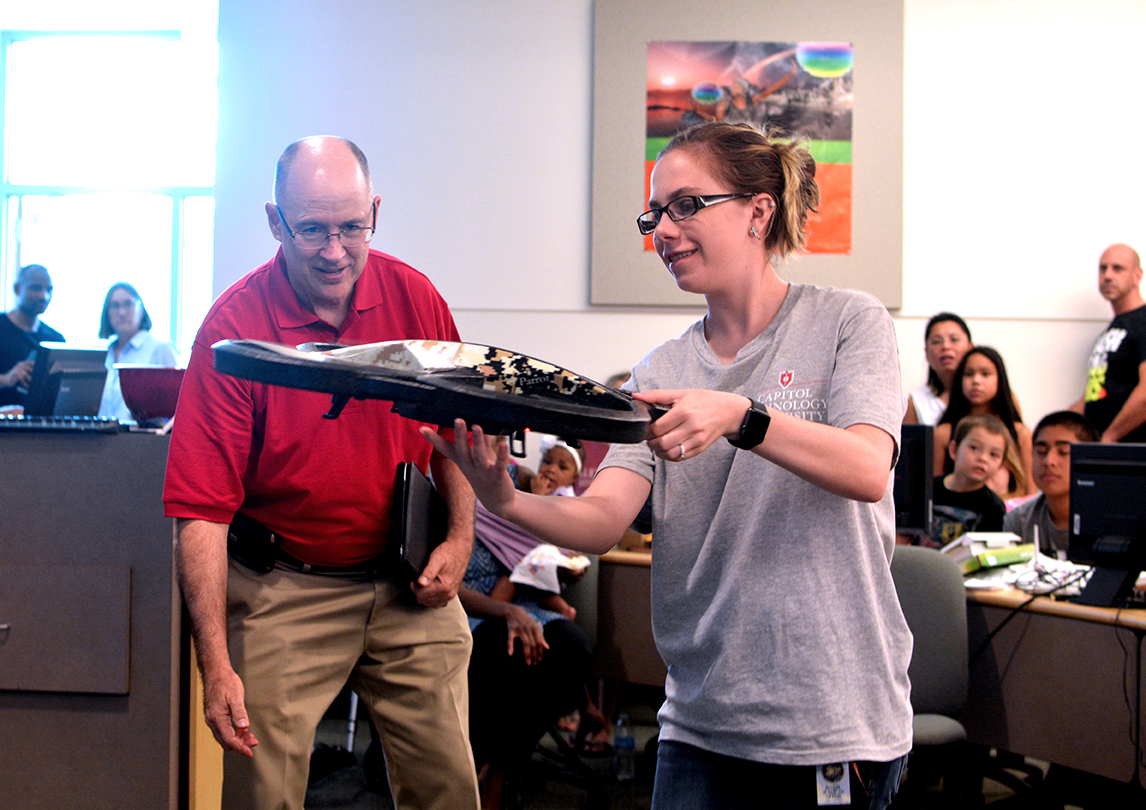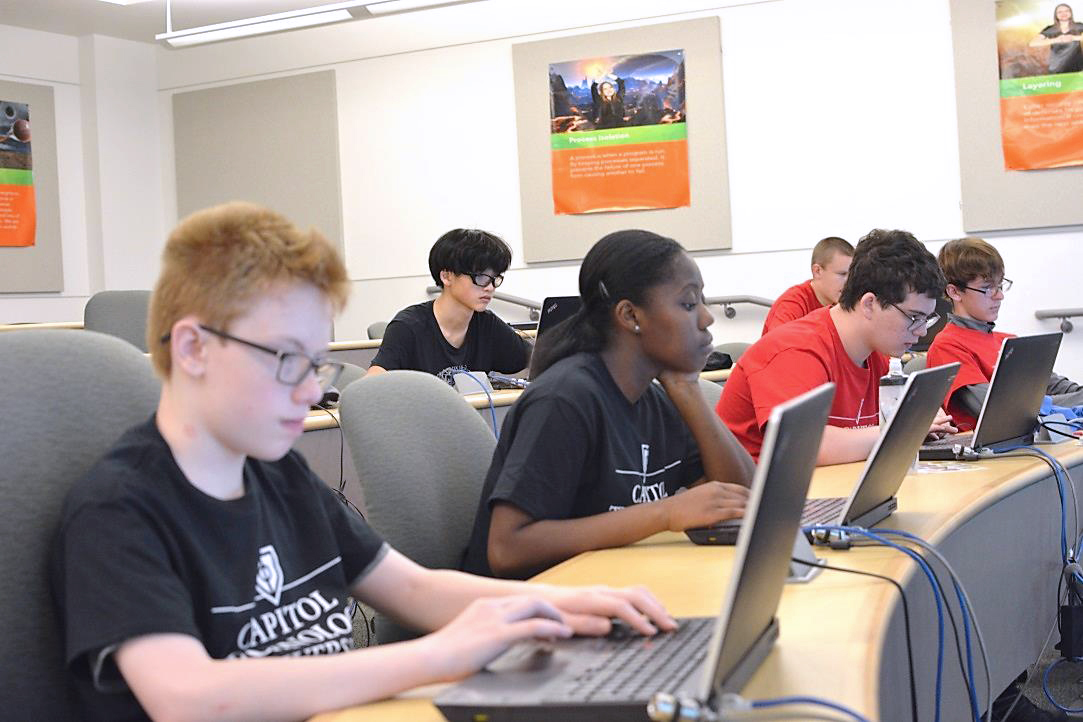www.CapTechU.edu

Some find STEM subjects exciting and inspiring. Others find them daunting. Few, though, can afford to overlook them. It is no exaggeration to say that every job, in today's world, is a technology job. Preparing young people for success in such a world depends, many agree, on educating them in STEM fields -- and overcoming the fear factor.
“I think the biggest problem with STEM in high school is somehow it is seen as 'hard',” says Dr. Alexander ‘Sandy’ Antunes, an astronautical engineering professor at Capitol Tech. “It’s a myth I wish we could retire. Elementary school kids find science and engineering fascinating and engaging, but as they get older, somehow STEM gets put into an ivory tower for 'only the most brilliant'. I feel persistence is worth more than smarts, but a lot of kids get told (often by family members) they aren't 'smart' enough to be a scientist or engineer (and movies reinforce this, as all scientists wear glasses, etc).”
Early exposure is key, say many experts. According to the Department of Education, “research shows that early exposure to STEM has positive impacts across the entire spectrum of learning. For example, early math knowledge not only predicts later math success, it also predicts later reading achievement (National Research Council, 2012)."
That's good news. But it comes with a warning: too many children are not, in fact, being taught STEM at an early age.
"Despite these powerful findings, our schools and early childhood programs often lack knowledge, resources, and capacity to focus on early STEM learning in developmentally appropriate ways.”

Capitol Technology University holds summer camps every year that help provide fun, STEM-based education for high school students, giving them an opportunity to see just how intriguing these fields can be -- and helping them to build confidence. In 2018, camps have focused on cyber, coding (both basic and advanced). and gaming.
Dr. Antunes, who runs the coding and gaming
camps says, “Capitol's summer camps for STEM have two easy benefits.
For kids interested in STEM, it's a hands-on interaction with 'the real
work' in contrast to the rigid lecture-style of K12 education. It's
kind of like being in elementary school again when dinosaurs and space
and building stuff was cool and easy and computers were neat hacking
things that could do anything. Because it turns out dinosaurs and space
and building stuff is cool and easy and computers are neat hacking
things that can do anything.”
“As a kicker,” he continues, “for our college
students, being camp Teaching Assistants is a great way for them to get
experience and decide if they want to be the next generation of STEM
teachers. Plus they’re not so far out of high school so they can relate
to what our camp students want on a personal level, increasing the
connection we provide in camp.”
Want to learn more? Check out our summer camps page, or read more about the types of fun activities we incorporate into our summer camps from Dr. Antunes, here.
No comments:
Post a Comment